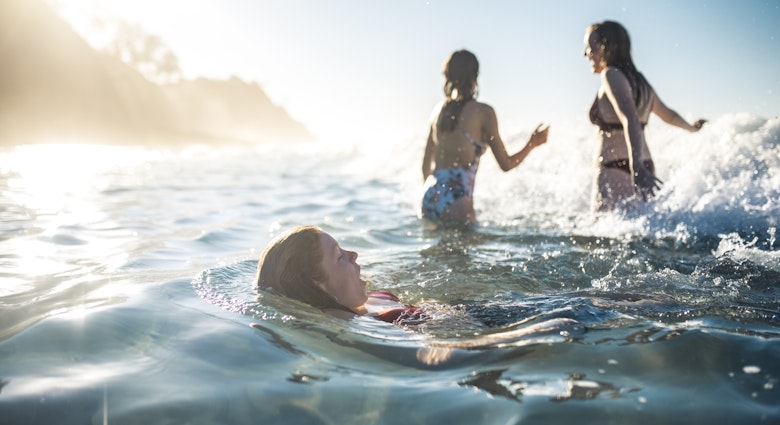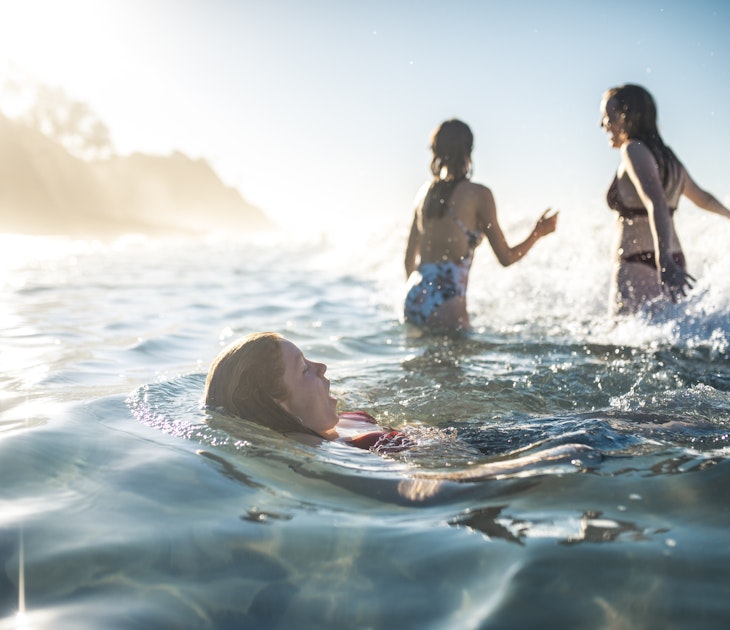

Not since the heyday of 1930s cross-Atlantic elegance or the 1980s schmaltz of The Love Boat has the cruise ship been such a popular way to travel.
Business is booming and so are the number of options for young families who want the trimmings of a luxury resort and the charm of travelling by sea. Yet the waters remain murky for those trying to navigate how best to launch. To mark the release of our brand new series, here are eight tips for taking a cruise with kids.

It really is the journey, not the destination
Make sure you choose a cruise that caters to children in a meaningful way, not just a babysitter service so grown-ups can hit the casino. These days companies such as , , and offer state-of-the-art ship design with an incredible array of kid-friendly facilities, such as wave pools, rock-climbing walls and movie theatres.
The kids will eventually get excited by the exotic locales, but if the ship isnŌĆÖt up to scratch ŌĆō especially if you spend days without sighting land ŌĆō then it doesn't matter if it's a Pacific Ocean odyssey or a Caribbean whistle-stop, the holiday will likely get two thumbs down.

Start and end well
Try to spend a few extra days in your departure and arrival cities. Hong Kong, Singapore, Sydney, Barcelona and Vancouver are all excellent cities for families adding on a few days at either end of the trip. This will help the kids to develop a sense of the adventure they are about to embark upon, and to shake off any sea legs when back on dry land.
Shore excursions can be pretty cool too. Activities such as snorkelling, hiking and kayaking might hold the kidsŌĆÖ attention for longer than guided, sometimes rushed tours of churches, museums and markets.
Train your budding cartographers
Maps do more than show us where weŌĆÖre going. Sure, they can help eliminate marital disputes in the car, but they can also open our minds to awe and wonder. Many kids will relish a glossy map with all the geographical details of the worlds they will be sailing through. Think back to your own daydreams about Tin Tin-esque journeys beyond the horizon.
Invest in a few high quality maps so your children can learn to measure distance, memorise the names of bodies of water and far-flung cities, and keep a captain's log of key geographical features. This may keep them engaged on a different level as you skirt around the Central American isthmus or sail through the Suez Canal.

Know thy daily itinerary
Your cruise ship will have a dizzying number of activities on offer. DonŌĆÖt panic. Just drop your carry-on in the stateroom when you board and work out whatŌĆÖs on and when. Study the activity schedule closely each morning over breakfast (or dinner the night before!) and coordinate your schedule so the whole family can enjoy themselves. Nap before craft? Table tennis before sundowners? Sometimes you have to make the tough calls...
Note also that high-adrenaline activities like abseiling, and skill-focused courses like cooking will likely cost additional money, but these can be great for engaging older kids who otherwise prefer being left to their own (electronic) devices. Youth counsellors also coordinate events like talent shows, scavenger hunts, sports and video gaming tournaments. Tip these heroes generously!
Get nautical
Blimey, ho! ThereŌĆÖs fun to be had. Spend some time teaching the kids the language of the high seas. Before retiring to your quarters, test them on their ports and starboards, berths and hulls, winds and knots, water nymphs and deities. If the jargon doesnŌĆÖt float their boat, then scupper that and sink me!

Understand the scale of the thing
The logistical endeavour of running a cruise ship can wow small children. How many bread rolls are eaten each day on board? What's the total number of staff on board? How does the vessel compare in size to a blue whale? Your cruise line will provide lots of answers to similar curious questions, but it can be fun doing the research yourself beforehand.
Being so far out to sea can freak out some children, especially during life jacket drills, so avoid watching Titanic the night before boarding. Weak wi-fi signals can also disturb older children, but another fun way to stay in touch is via walkie-talkies (or inaudible grunts), but check first that you wonŌĆÖt be making waves with the shipŌĆÖs crew.
Prepare for smooth financial sailing
One benefit of cruising with kids is that you can pay for most of the trip prior to departure. This can be a real stress relief for adults as it gives peace of mind and silences the youngsters who would usually want you to cough up at every corner.
Once on board, you only really need money for some drinks, and the odd activity or special meal. Consider giving each child a small amount of pocket money for the day and encourage them to plan and make purchases in the safe and secure environment of a shipŌĆÖs confines.

Make the most of multigenerational travel
Cruising is a fabulous way for grandparents to spend time with the grandkids and everyone in between. Reconvening at meal times, enlivened by guest lectures on ancient kingdoms or bruised to the neck from dodgeball, the whole clan can share a few spritzers on the upper deck and pose for those killer seaborne selfies.
A cruise can be an intoxicating setting for creating multigenerational family memories. A week or two should be sufficient for the kids, or you might risk going overboard. As for the oldies, well, they may prefer to just heed the sirenŌĆÖs call and join a growing number of full-time cruisers, forever kids at heart.
Subscribe to our └Ž░─├┼┴∙║Ž▓╩┐¬Į▒╝Ū┬╝ Kids newsletter and get 30% off your first └Ž░─├┼┴∙║Ž▓╩┐¬Į▒╝Ū┬╝ Kids book purchase.
https://shop.lonelyplanet.com/products/cruise-ports-caribbean-1
Explore related stories


 FoodAll-inclusive adventures: 10 resorts you should consider for your next trip
FoodAll-inclusive adventures: 10 resorts you should consider for your next tripJul 22, 2019 ŌĆó 6 min read






 BeachesThese 5 day trips from Sydney will show you the splendors of New South Wales
BeachesThese 5 day trips from Sydney will show you the splendors of New South WalesNov 22, 2024 ŌĆó 7 min read
